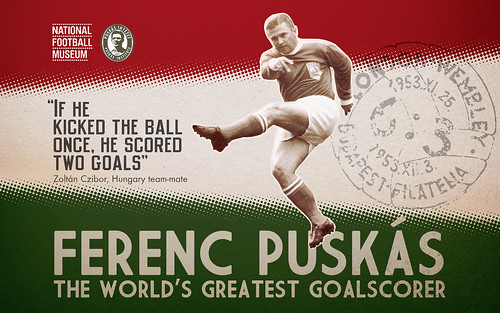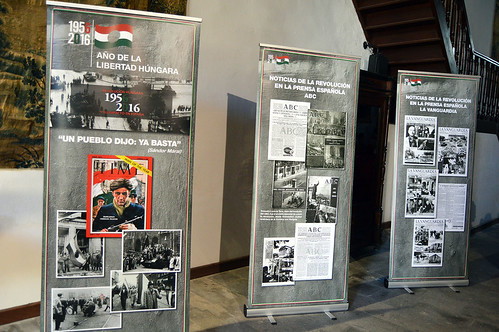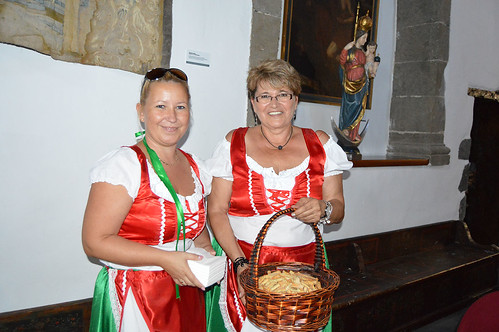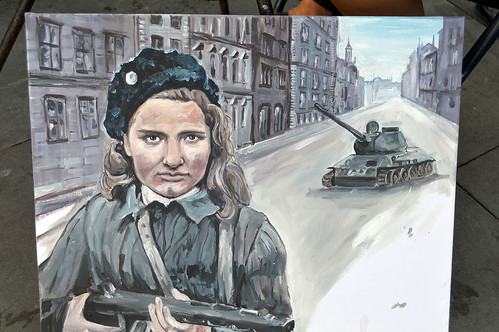The worst thing that happens to modern football superstars is losing a cosmetics endorsement. Imagine being exiled from your country of birth, your family and friends, and being labelled a traitor, all that and more happened to Ferenc Puskas of Hungary but he preserved his talent, his love of football, and his dignity to become one of the greatest players the game has seen. All this was brought into sharp focus for me when I attended a commemorative day to mark the 60th anniversary of Hungary’s short lived uprising against the communist rulers who moved in from Russia after WW2.
During those turbulent times 193,000 people fled the country, many headed for Spain and there are 300 Hungarians living in Adeje, Tenerife. The Hungarian Consul Nora Henriette Hermann-Boer and other leading figures from the community led the gathering in El Convento, between the Plaza de España and the town hall. The red, green, and white Hungarian flag nestled between those of Spain, the Canary Islands, and Adeje as speakers recalled those dark days. After the service the Spanish and Hungarian national anthems were played to the small gathering.
I had been drawn by the promise of a documentary film, The Real Puskas, I had heard lots about the footballing genius and seen old footage but didn’t appreciate the extent and impact of his career not only as a player but also as a manager. Puskas introduced himself to the British public in what became known as The Game Of The Century, England, unbeaten in 24 matches, hosted Hungary in 1953 at Wembley and the sublime Puskas led his team to a 3-6 victory that shook the football world. The Mighty Magyars are still recalled as the most complete team of all time. Get a load of these Puskas stats, he scored 84 goals in 85 internationals and 514 goals in 529 games in Hungary and Spain. The great man joined Real Madird as an overweight, semi retired 31 year old and starred for eight seasons, winning them everything in sight. Later he became a manager, getting Panathanaikos to the European Cup Final and taking Melbourne City to Australian league and cup titles.
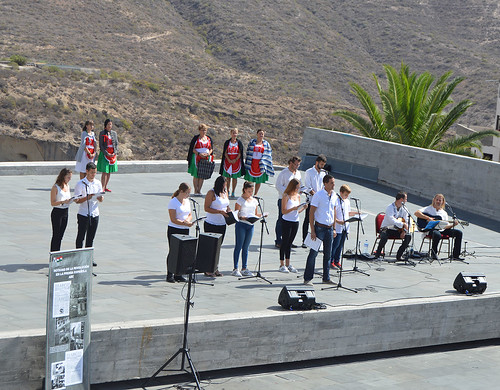
Puskas career gives a unique insight into the problems in Hungary, a team mate was hung for trying to leave the country, Puskas was abroad with the national team when the revolution was quelled and didn´t return until after the new free republic was formed in 1989. During the uprising 2,500 Hungarians were killed, the communists agreed to negotiate a peace but then sent in tanks to crush resistance. Thankfully these are happier times for Hungary, I felt a little uneasy watching this suffering unfold via the football film as I enjoyed the hospitality of ladies in national costume dishing out cheese straws. After the film there was a recital of music and folk stories on a stage in Plaza de España with the Barranco del Invierno as a terrific backdrop. In the plaza there were other echoes of stormier times via the brush strokes of Mariann Szucs, haunting images harked back to the years of struggle. For me though it was a delight to meet some new friends and yet another reason to be thankful for the easy life I have had.
